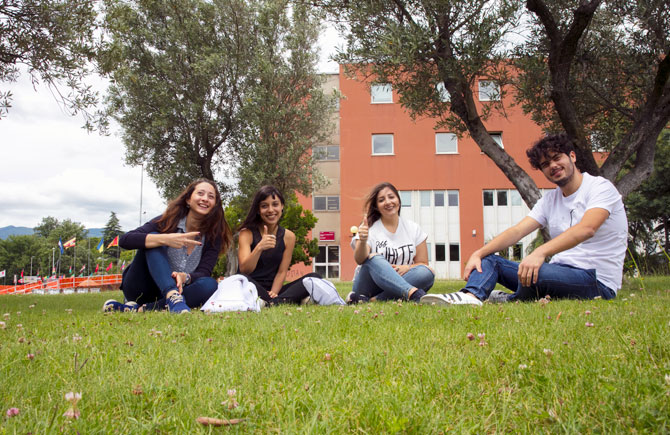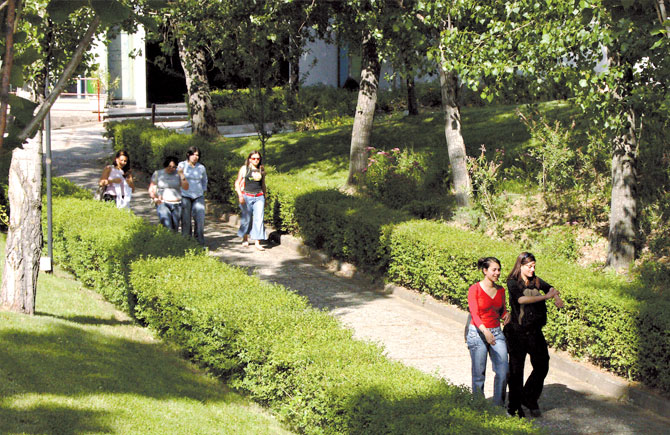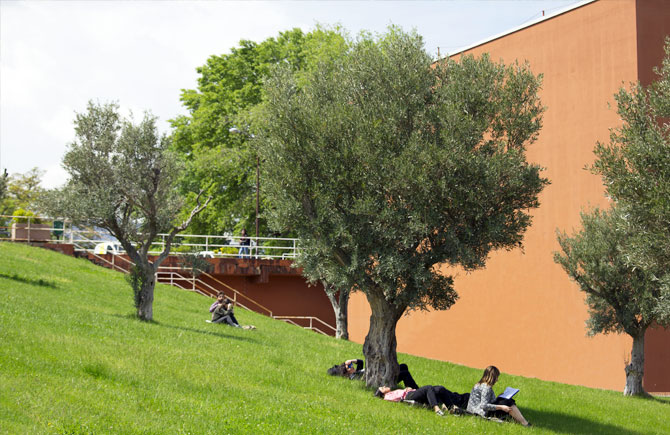- Maximum 100 students
- 20 exams + thesis to graduate
- Solid legal background along with economic and business knowledge, and digital skills
- Theoretical-practical teaching in order to be able to apply the theoretical knowledge acquired
- Labs, traineeships and internships
- Study abroad opportunities
- The graduate will become familiar with the issues regarding the relationship between new technologies and law
- Employment: Public administrations, third sector, companies
All courses are geared towards the specificity of the programme. Core legal subjects (Roman law, private law, constitutional law, history, philosophy of law) are supplemented by other courses, useful for acquiring specific skills (labour law, administrative law, commercial law, tax law, criminal law, procedural law [civil, criminal, administrative], international law), as well as economic-business disciplines, computer science and legal English.
Students participate in a call for application. Admission requirements are listed in the call for application:
- early (March/May): recommended to secure a place; high school seniors may also participate, students are admitted through a selective test TOLC
- standard (July/August)
- postponed (September/October), if there are still places available
Only those admitted can enroll.
For the call for application consult the dedicated section
Legal services for digital innovation
Course description
Labour transformations and the need to use advanced technologies require a good knowledge of law, the fundamentals of economics, and an adequate technical background: think of the use of large volumes of data (metadata, big data) and the related legal issues; the use of digital technologies in markets, finance, trials; the application of artificial intelligence, blockchain, etc. Each of the proposed topics takes these needs into account: the course aims to train professionals whose skills will be crucial in public administration, companies, the third sector.
The program is open to those who have a secondary school diploma or equivalent qualification obtained abroad and recognized as eligible by current regulations. A non-selective entry test will be taken to test adequate knowledge of the Italian language, solid general culture, logical, reading and text comprehension skills.
The aim of the course is to train graduates with a solid legal background (theoretical and practical), fundamental economic knowledge, and digital skills which are now essential for working in the public administration and the private management.
All sectors that require an intermediate-to-advanced level of knowledge of law and the use of digitisation: private and public administrations, companies, third sector. E.g.: technical banking consultant; employment services; judicial services; public services for issuing certificates.

Fees, contributions and exemptions
Costs calculated based on family income (ISEE-University) and including:
- fee for the equal access to university studies (from 130€ to 160€);
- annual amount (from 0 (if ISEE-University <= € 22,000) to € 2,000);
Flat tax = €1,000 for international students (UE and non UE)
With a family income (ISEE-University < € 26,000) students are entitled to receive:
- Scholarship consisting of total exemption from taxes, cash share, canteen and accommodation service (for off-site students)
- Grants for international mobility
- Reduced rates for the use of sports facilities and cultural services
- Benefits for students completing their degrees within regulation time
Exclusively on grounds of merit, students can obtain:
- International mobility grants (Erasmus)
- Free accommodation and canteen services published in the call DUnicAL career program for student-athletes.

Life on Campus
In the largest and best equipped campus in Italy students will experience the sense of a unique university community, sharing educational, recreational, sporting and cultural events with fellow colleagues and professors. The Campus is equipped with lecture rooms, a sports center, theaters, amphitheaters, cinemas, cafes, refreshment areas and other places for socialization, thus offering an extraordinary human and educational experience.
Discover more
Services to Students
Unical is organized as an independent town that provides the best possible solutions of accommodation for students and staff living on campus, because it offers multiple services for study activities and for individual and collective well-being: libraries, the Language Learning Center, counselling and inclusion services. The Campus also includes a health center, a post office, a bank counter and a mindfulness dedicated area.
Discover more
Residential Center
It complements and completes the services provided by the University of Calabria and has put into shape the idea of a British-American campus-style University. It encompasses 10 districts hosting the university residences, consisting of apartments with double and single rooms, living room, kitchen and toilets. In these districts there are common areas for study and recreational activities and sports, there are TV rooms, game rooms and gyms; launderettes and bike rental services are also available.
Discover more